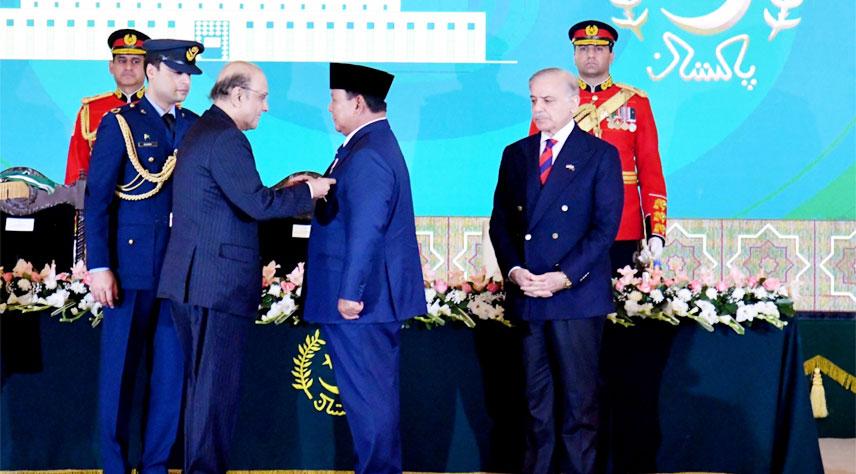In an underprivileged Asian society like Pakistan, women with wealthy in-laws are always considered lucky, focusing on luxury instead of peace, calmness, and a friendly husband-wife bond

By Zammurad Awan
Sanober was sitting in her beautifully maintained garden, sipping her evening tea, lost in deep thought. Her friend Somaya's words from their morning walk lingered in her mind, refusing to fade away. Every morning for the past eighteen years, Sanober had walked in a garden just ten minutes from her home, a routine she cherished. It was there that she met Somaya shortly after moving to the area following her marriage. Their walks had become a ritual, followed by tea or breakfast, where they would share their thoughts on family matters, their relationships with their spouses, in-law problems, and the challenges of motherhood. That morning, Sanober had once again confided in Somaya about a fight she had had with her husband the previous night. But instead of offering sympathy or advice, Somaya had simply said, " Sanober, your hands are tied with golden handcuffs. No matter how much Zeeshan scolds you, even raises his hand, no matter how difficult your in-laws are, or how much you complain and cry, believe it or not, despite all your wishes or desires to escape, you cannot free yourself from these golden handcuffs." These words struck a chord with Sanober. She couldn't shake them off and kept replaying them in her mind, questioning their truth.
As she pondered, memories of her carefree college days flooded back. She recalled singing songs with her friends in the college canteen, a mischievous girl full of energy and intellect.
Standing at 5'6" with a fair complexion and slim features, Sanober was the ideal daughter-in law any Pakistani mother could dream of for her son. Her college days were filled with joy. She and her friends would sing popular Hindi movie songs in a loud voice while passing through the corridors. In their all-girls college, they had the freedom to dance, laugh, and sing loudly.
Everyone knew it was Sanober when they heard her singing in the corridors. Sanober had chosen home economics as her subject, learning cooking, sewing, and other household skills to prepare for her future role as a housewife. She was raised by her father and stepmother, as her mother had passed away years ago. She had four siblings: two brothers and two sisters. She was very close to her father. Due to the responsibilities of raising children, particularly daughters, her father decided to marry her off as soon as she graduated, a common practice in middle-class households.
When Sanober finished her graduation, she was engaged to Zeeshan. All she knew about him was that he was extremely wealthy, with ancestral property and land. The grandeur of their engagement was evident; her wedding reception was held in her in-laws' vast home garden, large enough to accommodate 200 guests.
Soon after Sanober took charge of household affairs and started her family life, she realized that her mother-in-law, who was a well-known gynecologist in town, suffered from anxiety and depression, though she never accepted it. Sometimes, she behaved as the loveliest person on earth, and at other times, she reprimanded over small household matters like hiring and firing maids and drivers. Although Sanober had many servants at home to help, everything was controlled and often manipulated by her in-laws, in which mainly her mother-in-law was calling all the shots. Her father-in-law died already, and Zeeshan had one more brother and sister.
Sanober’s communication with her husband was poor as he loved partying at friends' homes every night and planning trips with them to Dubai, Thailand, and Indonesia. He didn't complement Sanober in appearance, and perhaps this constantly disturbed him, knowing his wife was prettier and more beautiful than him. Sanober’s beauty disadvantaged her in many ways, which she began to believe.
This complex in Sanober’s husband took a further aggressive shape because he had only a bachelor's degree and was running a business selling and purchasing cars. Raised on ancestral property, he had no career or professional degree, and the inherited land and associated wealth spoiled him. Additionally, his mother's psychological instability couldn't help him develop his personality. His brother and sister, who always lived in their superiority complex of being wealthy, ended up divorcing their partners.
In Pakistani culture, many falsely believe that marrying off a child, especially a male child with a weak personality, will make him stronger. This belief, though incorrect in all situations, was unfortunately made relevant in Zeeshan’s marriage. For Sanober, her new big house with many servants became useless as she had to deal with crazy in-laws and a difficult husband, which was extremely challenging.
However, her family and friends hardly registered these challenges and kept reinforcing that she was the luckiest girl on earth.
In an underprivileged Asian society like Pakistan, women with wealthy in-laws are always considered lucky, focusing on luxury instead of peace, calmness, and a friendly husband-wife bond.
Living in this smokescreen, Sanober kept surviving in the initial years as she became a mother of two sons. She focused on their upbringing and studies as she was the only parent who was emotionally, psychologically, and even physically available to her kids. She initially asked her husband to play the role of a father, which he hardly paid attention to. He did not visit the parent-teacher meetings with Sanober at their kid’s school. Apart from fulfilling her motherhood responsibilities, Sanober, being good at fine arts and home décor, used to decorate her house beautifully. She invested all her creativity and energy in making her house a beautiful home, where every corner showed her aesthetic sense.
After spending years in an unhappy marriage, Sanober finally made peace with her environment by focusing on her kids, fulfilling daily household responsibilities, and focusing on her health and spiritual side. She started fitness classes and took care of her mental and physical health.
Now, her elder son was in university, and the younger one was in high school. Both had their own lives to focus on, and she had enough time to focus on herself. Many people around her envied her life, which they thought was happy as she had choices to socialize with family and friends, a chauffeur-driven car, and a house filled with house help. But no one saw the cost of all this. Her husband never accompanied her to family gatherings, and they had no communication, not even like co-workers, let alone as husband and wife.
She tried to convey to him that if he kept misbehaving and scolding her without reason, she would leave. In response, Zeeshan said, "You cannot leave as the luxury you have here will not let you go.
You can't get this standard of living anywhere else." The fights between them were inconclusive. She moved into a separate room and categorically told him not to disturb her, but she still became his punching bag whenever he felt like it. She was not ready to leave this house as she did not think her sons could get the same facilities anywhere else. The sons had no connection with their father as they had seen an alcoholic father with terrible mood swings, who scolded everyone and even abused his kids and wife routinely.
It's not that Sanober hadn't tried to leave or bring this matter to her own family, but the difficult inlaws and husband hardly paid attention or moved toward any resolution. At times, Sanober thought she should have had a professional degree and a full-fledged career so she wouldn't feel so miserable. The same episode of the fight happened last night when, despite knowing his sexual inability, he forced himself on her by pulling her hair strongly.
It was not the first time, for a long time, Sanober had gone through this physical and sexual torture. She raised this issue multiple times and tried to convince him to seek help, but in response, he always abused her verbally and physically. Everything between them had been inconclusive for a long time. They both had become habitual of faking and forgetting everything whenever they were physical. Being shamed in Pakistani culture, Sanober had no other choice but to behave every day as if nothing had happened between them. When Sanober shared this again with Somaya on their morning walk, Somaya told her clearly, “You have decided to live here forever. Either you like it or not, but I assure you that you will never make yourself free of these handcuffs of gold because that is what society expects from you.”
There were only a few of her childhood friends, and many could not understand what she was going through. She decided to live the life she had control over to the fullest and block her mind from the part of life that was not in her control. This was not easy, but it was more convenient than making the daring decision to leave and start over again, which she didn't believe she was capable of because of an incomplete bachelor's degree and no professional education.
Somaya added, "Look, you have made your choice to stay in this luxurious life. We don't need to delve into whether your reasons are for your kids or fear of rejection from society and family. Now live by it or leave it all. Though you deserve a good family life, in your situation, you can't have the best of both worlds. I’m sure you know that.” When these words of Somaya were rolling in her mind, Sanober heard the voice of a cook, “Madam, Sir Zeeshan is calling you.” These sentences broke the spell, and she quickly went inside again, leaving everything “inconclusive” as always.

The writer is an associate professor at FCCU
Cold, partly cloudy weather expected over most parts of country
- 4 گھنٹے قبل

The Supreme Court sounds surprisingly open to a case against a death sentence
- 7 گھنٹے قبل
Chris DeMarco excited to take over Liberty when Warriors duties end
- 17 گھنٹے قبل

Gold prices jump in Pakistan, global markets
- 4 گھنٹے قبل
Taylor Swift breaks down in Eras documentary over Southport attack
- ایک گھنٹہ قبل
Pakistan win Under-19 Women T20 series
- 4 گھنٹے قبل
PM Shehbaz emphasises to resolve disputes peacefully through dialogue, diplomacy
- 5 گھنٹے قبل
Pakistan military court sentences ex-spy chief Faiz Hameed to 14 years in prison
- 5 گھنٹے قبل
Japan lifts tsunami warning after 6.7-magnitude earthquake
- 4 گھنٹے قبل

Want a new job? Be (sort of) annoying.
- 16 گھنٹے قبل

ChatGPT can now use Adobe apps to edit your photos and PDFs for free
- 9 گھنٹے قبل

The “Trump Gold Card,” briefly explained
- 16 گھنٹے قبل










